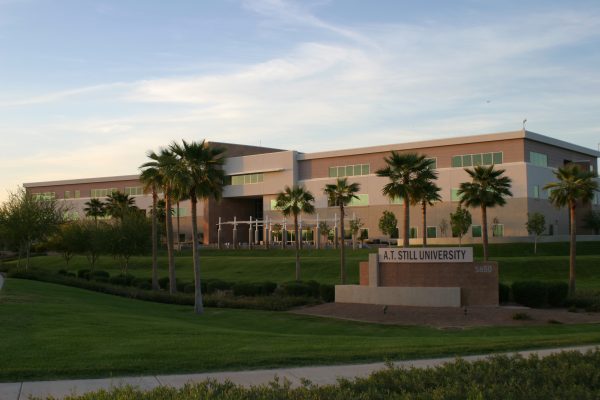The Wright Center National Family Medicine Residency receives ACGME initial accreditation
Posted: December 20, 2018
The Wright Center for Graduate Medical Education National Family Medicine Residency (NFMR), a collaboration between The Wright Center and A.T. Still University’s School of Osteopathic Medicine in Arizona (ATSU-SOMA), recently received initial accreditation by the Accreditation Council for Graduate Medical Education (ACGME).
Established in 2013 as a single residency program operating at six community health centers across the country, NFMR’s national consortium model for teaching health centers is the first of its kind. The Wright Center acts as the sponsoring institution, while ATSU-SOMA provides the educational infrastructure. Currently there are 48 residents in the program, training at health centers in Arizona, Ohio, Washington, and Washington, D.C.
As health center trainees, residents gain real-world experience while immersed in an educational program. This includes two hours of weekly didactic sessions delivered via Zoom, a cloud-based video conferencing platform.
“The Zoom format allows us to meet, teach, and stay connected with both residents and faculty at the training sites,” says Christine Morgan, EdD, residency development manager.
NFMR was developed to bolster the physician workforce in rural and underserved areas, addressing healthcare disparities. The teaching health center model creates a pipeline that begins in the community. Children and young people who are inspired by the care they receive at health centers may choose to pursue careers in medicine. This brings them through the doors at ATSU-SOMA, which leads them back to a health center for residency. Many NFMR graduates return to practice at a community health center, providing care to underserved populations and filling gaps in the health workforce. According to ATSU’s chair of graduate medical education and NFMR program director, Lawrence LeBeau, DO, more than half of NFMR’s 54 graduates have gone on to practice at community health centers. This far exceeds the average for other teaching health center programs (36 percent) and traditional residency programs (2 percent).
NFMR was initially accredited by the American Osteopathic Association. However, beginning in 2020, the ACGME will be the sole accrediting body for graduate medical education, evaluating both osteopathic and allopathic programs. Since 2015, osteopathic residency programs have been transitioning to meet the ACGME’s rigorous academic standards.
“It’s a different philosophical approach to medical education,” says Jeffrey Morgan, DO, MA, FACOI, CS, dean of ATSU-SOMA. “Osteopathic programs are historically more flexible in their thinking and their approach, while allopathic programs are more research-based and linear. It’s almost like we’re speaking two different languages.”
This creates some challenges for osteopathic programs applying for ACGME accreditation.
“Our innovative program did not fit the mold of traditional ACGME programs,” says Dr. LeBeau. “This created an opportunity for NFMR and ACGME to learn from each other as graduate medical education transitions to a single accreditation system.”
NFMR’s initial accreditation by ACGME is a testament to the quality of the program and its impressive outcomes. According to Dr. LeBeau, NFMR graduates have a 97 percent first-time pass rate on the American Osteopathic Board of Family Physicians specialty board exams. ACGME accreditation paves the way for future innovation in graduate medical education to the benefit of students, providers, patients, and communities.